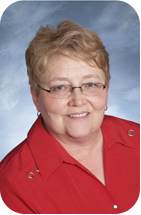Heroes of Infection Prevention 2011
- About APIC
- Vision and mission
- History
- Leadership
- Tania Bubb
- Patricia Jackson
- Lisa Sturm
- Devin Jopp
- Deborah Patterson Burdsall
- Lisa Caffery
- Jill Holdsworth
- Monika Pogorzelska-Maziarz
- Sarah Smathers
- Elizabeth R. Wallace
- Harold “Pat” Patton
- Joseph Scaletta
- Carol M. McLay
- Justin Smyer
- Mary Jo Morrison
- Paula Ann Pintar
- Stephanie Carraway
- Leadership Development
- Chapters
- Panels
- Bylaws
- Contact us
- Committees
- Awards
- Research Awards
- 2020 Research Awards
- Research Awards
- Heroes Implementation Research Scholar Award
- Heroes of Infection Prevention Award
- Heroes of Infection Prevention 2022
- Heroes of Infection Prevention 2020
- APIC 2022 Heroes Elizabeth (Beth) Richardson, MPH, MSN, RN, CIC
- APIC 2021 Heroes Khaled Alnafee
- APIC 2022 Heroes Erin Minnerath, Tiffany Martens, and Angie Silva
- APIC 2021 Heroes Lisa Sturm
- APIC 2022 Heroes Patrick Gordon, DNP, RN, CIC
- APIC 2021 Heroes Tampa General Hospital
- APIC 2022 Heroes Kelley Knapek, BSN, RN, CIC, CWON
- APIC 2021 Heroes Jeremy Gibson-Roark, Leslie Lloyd
- APIC 2022 Heroes Jodie Leonard, BS, RN, CIC
- APIC 2022 Heroes Jeffrey Miller, MD, MPH, CIC
- APIC 2020 Heroes Northside Hospital – Gwinnett Medical Center
- APIC 2020 Heroes Regions Hospital
- Heroes of Infection Prevention 2019
- APIC 2020 Heroes Kelly West and Craig Gilliam
- APIC 2020 Heroes Westchester Medical Center IPC Team
- APIC 2020 Heroes Brenda Ehlert
- APIC 2020 Heroes Emory University Hospital Midtown
- Heroes of Infection Prevention 2018
- Heroes of Infection Prevention 2017
- Heroes of Infection Prevention 2016
- Heroes of Infection Prevention 2015
- Heroes of Infection Prevention 2014
- Heroes of Infection Prevention 2013
- Heroes of Infection Prevention 2012
- Heroes of Infection Prevention 2011
- Heroes of Infection Prevention 2010
- Heroes of Infection Prevention 2009
- Heroes of Infection Prevention 2008
- Heroes of Infection Prevention 2007
- Heroes of Infection Prevention 2006
- APIC/AJIC Publication Excellence Award
- Distinguished Awards
- Chapter Awards
- Presidents’ Distinguished Service Award
- Scholarships
- Award Recipients 2019
- Awards Overview
- Membership Sections
- Corporate/System Level Director IP Section
- Oncology Section
- IP Informatics Section
- Critical Access Hospitals (CAH)
- Ambulatory Care section
- Behavioral Health section
- EMS/Public Safety section
- Home Care section
- International section
- Long-Term Acute Care (LTAC) section
- Long-Term Care (LTC) section
- Minority Health and Safety section
- Pediatrics section
- Public Health section
- Veterans’ Affairs (VA) section
- For Media
- Staff Directory
Making a Clean Sweep to Reduce HAIs

Janice Schandel, BSN
Mountainview Specialty Care Center
Greensburg, PA
As director of nursing at a 137-bed long-term care facility, Janice Schandel, BSN, makes it her business to treat her residents like family. Her 2009 program to prevent an outbreak of H1N1 virus at the Mountainview Specialty Care Center (MSCC) resulted in long-term improvements in hand hygiene and surface cleaning, significant cost savings, and, most importantly, tremendous benefits to residents’ health.
Working with MSCC Infection Control Coordinator Kimberly Thomas, Schandel reviewed current practices on hand hygiene, as well as environmental cleaning and disinfection. Schandel and Thomas discovered that accessibility to both surface- and hand-germicidal products was an issue. Working closely with an interdisciplinary team, they identified key areas for surface- and hand-hygiene wipe installation. These included medication, treatment carts and housekeeping carts, as well as nursing stations, dining, therapy, activity, and public areas.
“Involving the staff was the key – once nurses are involved in a project, they take ownership,” said Schandel. A lid-color coding system, “red for the bed and blue for you”, made wipe identification easy. Following installation, three days of intensive educational outreach to staff, patients, and visitors brought the program to life.
“Project Clean Sweep” reduced the MSCC HAI rate from 2.42 percent to 0.55 percent between 2008 and 2009. The number of acute transfers due to infection dropped from 30 to eight, and antibiotic costs declined by more than 40 percent, totaling nearly $34,000 in savings. The program also reduced employee absenteeism from 1,349 hours to 792 hours over the same period. This resulted in significant cost savings for the facility, despite the expense of additional hygiene supplies.
Supplies for Project Clean Sweep cost approximately $600-700 per month, and cover 200 staff, patients and visitors. “Our annual return on investment in antibiotic cost alone was 4:1,” said Schandel. This successful pilot program has now been replicated at many Fundamental-owned facilities nationwide.
“Our facility is home for our residents. If we have an outbreak we have to close down dining facilities, activities, everything,” said Schandel. “This isolates the residents – and that’s something we try to avoid at all cost.”
Schandel presented a summary of her Project Clean Sweep program at the APIC 2010 annual conference in New Orleans (Abstract 8-080).

